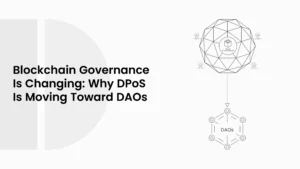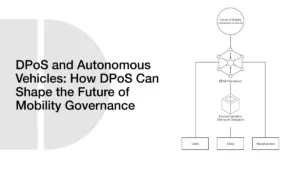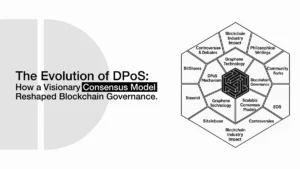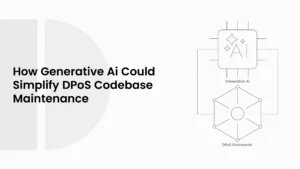6 Mistakes New DPoS Stakers Make (And How to Avoid Them in 2025)
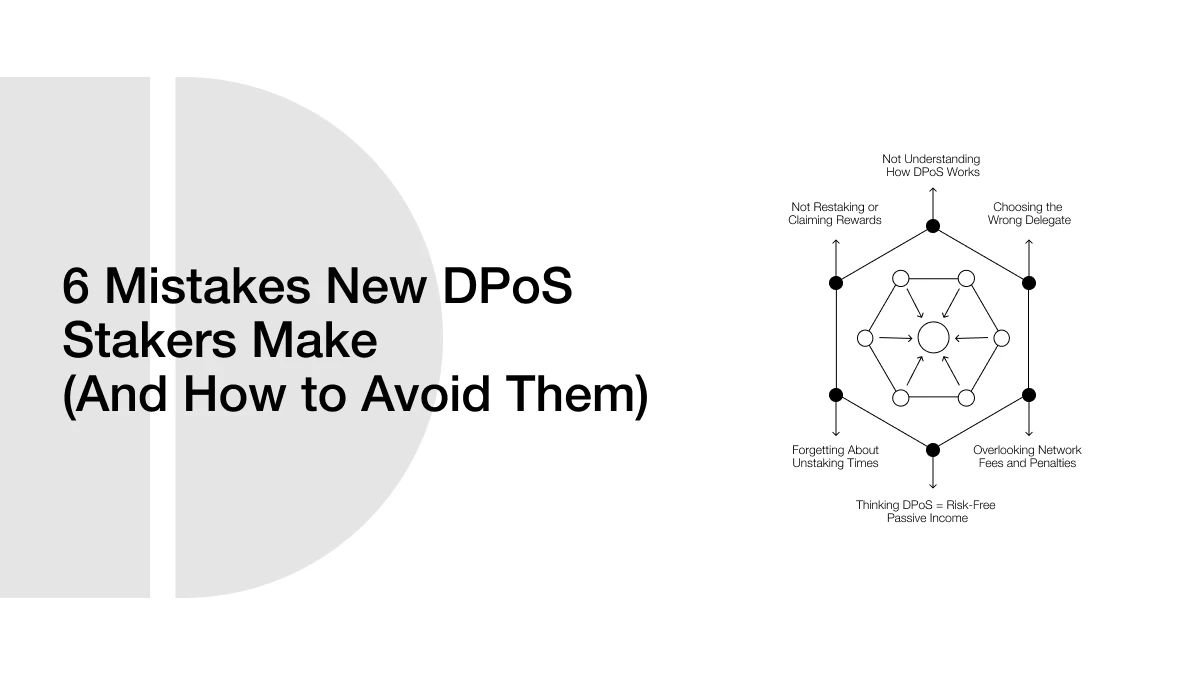
Planning to stake your tokens on a Delegated Proof of Stake (DPoS) blockchain? That’s a promising decision. DPoS is characterized by high speed, lower energy consumption, and more inclusive governance compared to other blockchain models. Nevertheless, before handing over your tokens in the expectation of earning a passive income, it is worth knowing some of the mistakes that new stakers typically make.
- 1. Not Understanding How DPoS Works
- 2. Choosing the Wrong Delegate
- How to Research Validators Before Staking
- 3. Not Restaking or Claiming Rewards
- 4. Forgetting About Unstaking Times
- 5. Overlooking Network Fees and Penalties
- 6. Thinking DPoS = Risk-Free Passive Income
- Conclusion
- Frequently Asked Questions (FAQs)
- Glossary of Terms
Even though staking can seem easy at a glance, there are rules and systems in each DPoS network. Be it a wrong choice of the delegate, poor judgment in the way rewards are allocated, all these minor mistakes can cost you time, profit, or even your tokens. This guide will walk through six key mistakes that new stakers tend to make and explain how to avoid them. You’ll also gain a clear understanding of how DPoS works and why it plays such an important role in blockchain governance.
1. Not Understanding How DPoS Works
DPoS stands for Delegated Proof of Stake. It’s a consensus algorithm, a method blockchains use to agree on what’s true. Instead of every node racing to solve math puzzles (like Bitcoin), DPoS allows token holders to vote for trusted validators, also known as block producers in DPoS.
Such block producers can be compared to the referees of the chain. They generate and check blocks. In exchange, they will be rewarded, which they will share with the stakeholders who voted for them. The entire system is speedy and efficient. That is why DPoS is commonly present in fast finality blockchains, where transactions are confirmed within a few seconds.
ALSO READ: Breaking Down DPoS Architecture: From Block Creation to Governance Cycles
The mistake is not knowing the basics, which means you might trust the wrong validators or encounter unexpected fees or reward delays. Before staking, read up on how DPoS works.
2. Choosing the Wrong Delegate
Having learned about the system of delegate voting, the following step would be to choose the appropriate validator. This choice is not as trivial as it may seem. Many first-time stakers choose a validator without conducting any research; some are drawn to those offering the highest rewards, while others simply select the first name on the list.
However, this approach can lead to problems. Not all validators operate with the same level of reliability or integrity. Some may miss block production, charge high commission fees, or have a negative reputation within the community. In a few instances, a validator may also go out of business or fail to reward appropriately. Given the privilege of your voting power, you must select a validator that is reliable, active, and transparent in its operations.
How to Research Validators Before Staking
| Factor to Check | What It Means | Tools to Use |
| Uptime (%) | How often the validator is online and producing blocks | Mintscan (Cosmos), Bloks.io (EOS) |
| Missed Blocks | Frequent misses may mean poor reliability | Validator explorer on chain |
| Commission Rate | The percentage the validator takes from your rewards | Validator profile dashboards |
| Voting History | Helps assess alignment with your values or network goals | Governance portal |
| Community Engagement | Shows commitment, transparency, and accountability | Social media, Discord, forums |
| Reputation/Rank | Often based on combined performance metrics | Explorer ranking lists |
3. Not Restaking or Claiming Rewards
One of the primary advantages of DPoS is the ability to earn rewards on a regular basis. However, there’s an important detail that many new users overlook: not all networks automatically restake or compound those rewards for you.
In many DPoS-based blockchains, you have to manually claim your rewards and restake them if you want to maximize your earnings. If you don’t take action, your earned tokens may simply sit idle in your wallet, not generating any further income. And to make it worse, in some blockchains, unclaimed rewards may expire or burn over time, and you might lose them altogether.
To prevent this problem, it is essential to be physically active. Use reminders to review your staking dashboard, or consider using a wallet that offers notifications. If your network allows auto-compounding, ensure it is turned on. This aspect will automatically reinvest your rewards, which helps your earnings mature gradually without requiring any additional effort. This is not a complicated move, but it can make a big difference in terms of future returns.
4. Forgetting About Unstaking Times
Consider this: you staked 100 tokens. A month later, you need cash. You go to unstake, and then you learn there’s a 21-day waiting period before you can access your tokens. Most DPoS blockchains include an unstaking delay. It could be three days, seven days, or even more. During that time, your tokens are locked. You can’t sell them or move them.
ALSO READ: How to Delegate Tokens on a DPoS Blockchain (Step-by-Step Guide)
The biggest mistake would be not to plan ahead. If the market crashes or pumps, you should start watching from the sidelines. Learn the unstaking period of your chosen blockchain before staking. Only stake what you can afford to lock up. Keep a portion of liquid for emergencies.
5. Overlooking Network Fees and Penalties
Every blockchain has its own rules. Some charge fees to stake. Others fine you if your validator misbehaves.
| Network | Slashing Trigger | Penalty for Validator | Penalty for Stakers |
| Cosmos | Double-signing, prolonged downtime | Loss of stake, jailed (suspended) | Partial loss of staked tokens |
| Polkadot | Double-signing, downtime, equivocation | Slashed and removed | Proportional slashing |
| WAX | Rare (mostly centralized enforcement) | Block rewards revoked | Usually unaffected |
| EOS | No traditional slashing, uses reputation | Lower votes, potential removal | Minimal impact unless the delegate fails |
| TRON | Missed block production | Reduction in rewards | Typically no slashing |
For example, you may be slashed if your selected block producer is offline too frequently. That is at the cost of part of your staked tokens. Some DPoS systems penalize a validator and their stakers if the former double-signs a block or violates consensus rules. Use a validator with good uptime (typically 99% or higher). Avoid any person who appears to be unstable, unfamiliar, or unreliable. And never forget to check whether there are penalties.
6. Thinking DPoS = Risk-Free Passive Income
Although staking is a great option to make passive income, it is not risk-free. The cryptocurrency market is highly volatile, and prices can fluctuate rapidly. Blockchain networks are also subject to alterations, and a validator may, at times, even be penalized, known as slashing, which can affect your staked tokens. Additionally, transaction fees and commissions may erode your profits over time.
It is also worth noting that there are DPoS networks that require the involvement of their stakeholders. You might even be required to cast a vote on proposals, upgrades, or matters of governance. Failure to observe these obligations may result in the loss of your voting power or some of the rewards.
ALSO READ: Is Delegated Proof of Stake (DPoS) the Most Scalable Consensus Mechanism Ever?
How to avoid this: Consider staking the same way you would consider any high-stakes investment. Keep track of your chosen network, check official announcements, and consider joining community groups or forums, such as Discord or Telegram. Passive income is possible, but it still needs attention and input.
| Tip | Why It Helps |
| Use Auto-Compounding | Automatically reinvests your rewards, allowing your stake to grow with minimal effort. |
| Set Reward Reminders | Helps you claim and restake manually if auto-compounding isn’t available. |
| Choose Low-Fee Validators | Keeps more of the rewards in your pocket, rather than paying validator fees. |
| Check Validator Performance | Ensures consistent rewards by picking reliable block producers. |
| Track With Analytics Tools | Let’s you monitor your earnings and delegate status over time. |
| Follow Transparent Validators | Those who communicate well often offer better long-term returns. |
Conclusion
DPoS is one of the most efficient consensus mechanisms available. It’s fast, green, and more democratic than many other systems. Whether you’re staking on a gaming chain like WAX, a DeFi chain like TRON, or a general-purpose chain like EOS or Cosmos, the same rules apply: know how DPoS works, pick your block producer wisely, and stay on top of your rewards and risks.
Remember the lessons from other blockchain projects. Overlooking basics leads to broken trust and lost funds. Staking isn’t just about earning; it’s about participating in the network you believe in. Go ahead and dive into DPoS staking. Follow the facts.
Frequently Asked Questions (FAQs)
- What is Delegated Proof of Stake (DPoS)?
DPoS is a blockchain consensus mechanism where token holders vote for trusted validators (block producers) who verify transactions on their behalf.
- Is staking on a DPoS chain safe?
Staking is generally safe, but there are risks, such as validator slashing or missing rewards, if you’re inactive or uninformed.
- How do I choose the best delegate?
Look for validators with high uptime, low fees, and a strong community presence. Avoid those with a bad reputation or a history of poor performance.
- Can I lose money while staking?
Yes. You can lose part of your stake due to slashing or by picking dishonest validators. Also, fees can eat into your earnings.
- What happens if I forget to claim or restake?
On some networks, rewards may expire or remain idle. Always monitor your dashboard or automate compounding if possible.
Glossary of Terms
- DPoS (Delegated Proof of Stake): A voting-based consensus mechanism for blockchain validation.
- Block Producer/Delegate: A node elected to validate blocks and maintain the network.
- Slashing: A penalty for validators who break network rules, which can also impact their stakers.
- Unstaking Period: The time you must wait after unstaking before tokens become usable.
- Restaking/Compounding: Reinvesting staking rewards to increase future earnings.
- Auto-Compounding: Automatically adding earned rewards back into your stake.
- Validator Reputation: A track record of uptime, behavior, and community trust.

